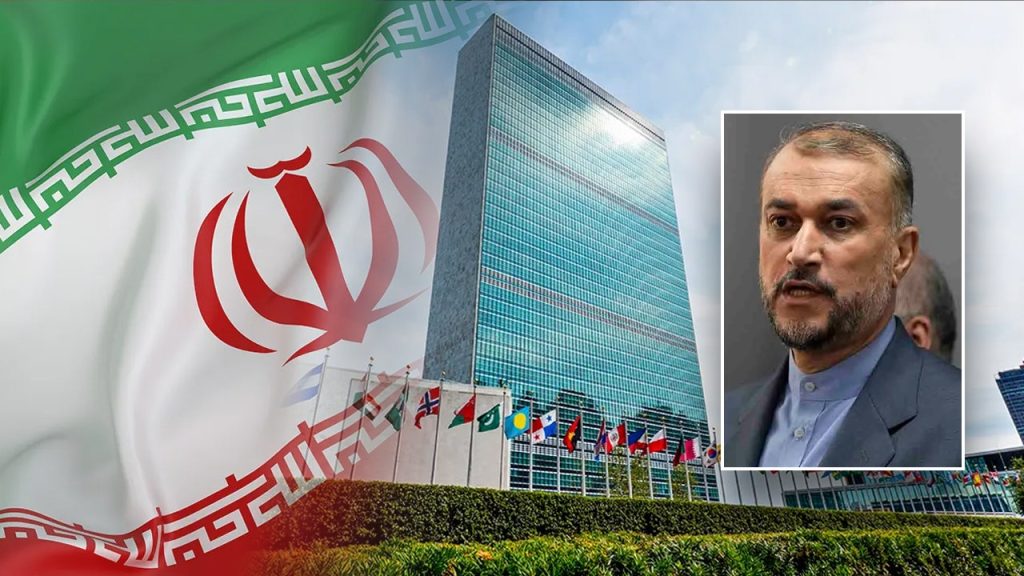Senator James Lankford of Oklahoma is demanding that the U.S. cancel the visa given to Iranian Foreign Minister Hossein Amirabdollahian to attend a United Nations Security Council meeting following Iran’s attack on Israel. Lankford wrote a letter to U.S. Secretary of State Antony Blinken emphasizing the need to deny entry to Amirabdollahian due to his ties to Hamas terrorists and Iran’s irresponsible actions jeopardizing Israel’s security. Lankford also referenced the anniversary of Hezbollah’s bombing of the U.S. Embassy in Beirut as further justification for denying the visa.
Despite the call to cancel Amirabdollahian’s visa, a U.N. diplomatic source confirmed that the Iranian foreign minister would still attend the meeting. The State Department and United Nations refused to comment on the visa situation, citing confidentiality laws. State Department Spokesperson Matthew Miller stressed the importance of the U.S. allowing diplomats from all countries to attend U.N. meetings, including those with whom the U.S. has disagreements. However, Miller noted that restrictions could be placed on certain diplomats during their stay in New York.
Iran’s attack on Israel, involving drones and missiles, was described as escalatory by Miller, who emphasized the need to reduce tensions in the region. The attack was in retaliation for a strike against an Iranian diplomatic mission in Damascus, attributed to Israel. Amirabdollahian’s potential attendance at the U.N. Security Council meeting, focusing on Palestinians, was reported by an Arabian Peninsula news outlet, which also suggested that Iran could agree to halt further actions if a ceasefire deal was brokered for Gaza.
The State Department reiterated its obligations under the U.N. Headquarters agreement, regardless of concerns about Iran’s destabilizing activities and support for terrorism. United Nations Secretary-General António Guterres’ spokesperson emphasized the importance of member states being able to meet and discuss global issues, despite not having the authority to regulate which individuals are chosen to represent member states. The Secretary-General condemned the Iranian missile strikes against Israel but does not have control over the selection of individuals by member states for U.N. meetings.
The Iranian Mission to the United Nations did not respond to requests for comment on the situation. Senator Lankford’s push to deny Amirabdollahian’s visa highlights the ongoing tensions between the U.S., Israel, and Iran, with concerns about Iran’s actions in the region and ties to terrorist organizations. The decision to allow Amirabdollahian to attend the U.N. meeting despite objections raises questions about diplomatic protocol and the balance between allowing dialogue and addressing security threats. The U.S. and U.N.’s responses to the situation reflect the complex dynamics at play in the Middle East and the challenges of managing conflicts and tensions in the region.


